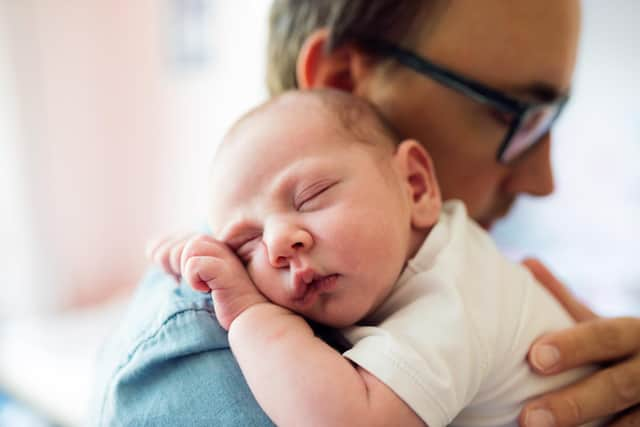Cases highlight complexity of surrogacy law - Lynsey Brown
However, a raft of cases heard in UK courts highlight a continuing gap in knowledge of surrogacy and assisted conception, which has left surrogates, intended parents, and children, in very precarious positions.
In Re X v Z (Parental Order: Adult), Mr and Mrs X entered into a surrogacy arrangement in the United States in 1998, with their surrogate, Mrs Z. Their son, Y, was born in California. Orders were made under US law providing Y was legally the child of Mr and Mrs X.
Advertisement
Hide AdAdvertisement
Hide AdMr and Mrs X brought Y back to their UK home and got on with life. To their “major shock”, Mrs Z contacted them in September 2021 alerting them to their need to obtain a Parental Order in the UK if they were to be treated as Y’s parents here. In the absence of that, Mrs Z and her husband remained, under UK law, Y’s legal parents. By this time, Y was in his 20s.


Mr and Mrs X applied to court for a Parental Order, which was granted by Mrs Justice despite the age of the ‘child’, the fact he was no longer living at home with his parents, and the application being years out of time. If Mrs Z had not been in touch, Y would have remained her legal child.
A similar situation arose in X, Y and Z (Children: Parental Orders: Time Limit), where a same-sex married couple had twins via surrogacy in 2017, then a third child via surrogate in 2019, all in the US. They went through US legal processes to be recognised as legal parents, and returned with the children to Denmark. The twins were registered as Danish citizens based on one of the fathers’ legal parentage.
However when they later sought to register the third child as a Danish citizen, they were refused and told the twins had been registered as such in error. Only the biological father (not the Danish citizen) and surrogate were recognised in Denmark as legal parents. Danish authorities threatened to deport the children as they had no residence status. The family eventually relocated to England and applied for and obtained Parental Orders in the UK.
Osborne & Arnold v Cambridgeshire County Council involved a same-sex female couple who had a child via treatment at a licenced UK fertility clinic using an anonymous donor. The couple satisfied legislative requirements for both to be treated as legal parents, but the registrar refused to register them as such, allegedly advising that the partner who hadn’t carried the baby (Osborne) would require to adopt the child. This is what she did. A troubling factor here is that no-one, from the local authority involved in the adoption process, to the courts, recognised there was no need for adoption because Osborne was already the legal parent. Only when they went to register their second child were they told they were given wrong information the first time. The couple had to go through complex court proceedings to undo the erroneous registration and adoption.
Lastly, there is the distressing case of James MacDougall, who fathered multiple children after advertising himself as a sperm donor on social media. When entering into donor arrangements, MacDougall failed to be upfront and transparent about his incurable genetic condition, fragile-X, which prevented him from acting as a donor through a regulated clinic. At least one of the children he fathered was showing signs of developmental issues when the case was heard. MacDougall sought contact with some of the children, and whilst unsuccessful, this is a stark example of the risks of unregulated arrangements involving online matching between sperm donors and women desperate to conceive - not only in terms of health but also in relation to the rights donors have to pursue contact with children born of unregulated arrangements.
These cases show gaps in knowledge in relation to assisted conception, surrogacy and parental orders. Surrogacy and assisted conception, whilst becoming more common are still relatively rare in Scotland and the UK. It is important for everyone involved to ensure they take expert legal advice before embarking on these routes to family creation.
Lynsey Brown is a Senior Associate, Harper Macleod
For a Scottish perspective on news, sport, business, lifestyle, food and drink and more from Scotland's national newspaper, go to www.scotsman.com
To subscribe go to www.scotsman.com/subscriptions
Comments
Want to join the conversation? Please or to comment on this article.